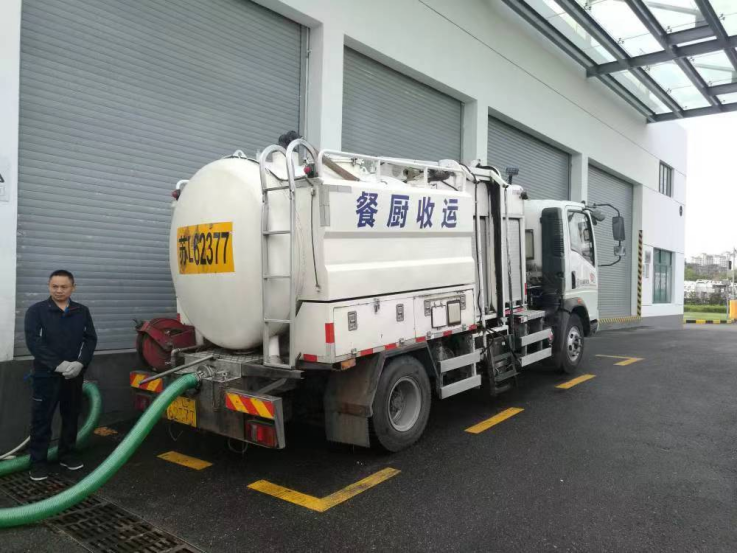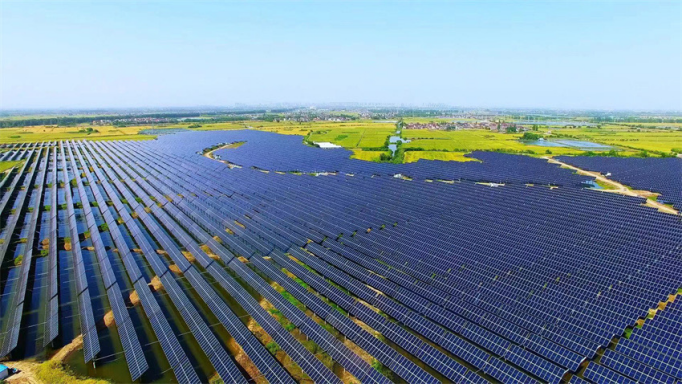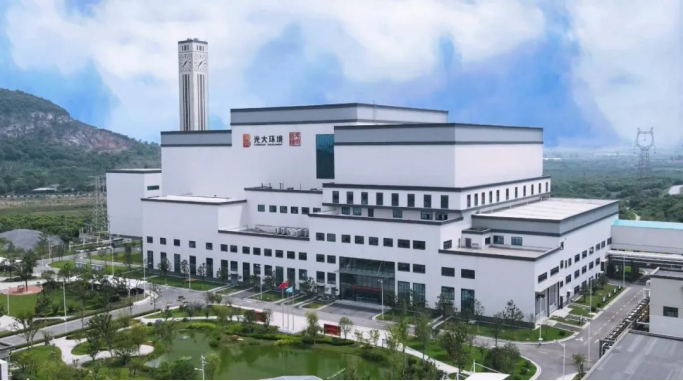Zhenjiang turns waste into treasure and practices green and low-carbon
Every day, more than 20 collection and transportation teams of Jiangsu Hongrun Biomass Energy Technology Co., Ltd. are active among more than 2000 recycling sites such as restaurants and canteens in Zhenjiang Urban area and Yangzhong Main City. They transported more than 200 tons of kitchen waste back to the factory for treatment. The hard work of these collection and transportation teams has made important contributions to the city's environmental sanitation and resource recycling. Through professional collection, transportation and treatment processes, the reduction, harmlessness and resource utilization of kitchen waste have been achieved. This not only effectively solves the problem of urban kitchen waste disposal, but also provides strong support for promoting the sustainable development of the city.

In the past, kitchen waste was often disposed of through landfill, incineration, etc., which not only consumed energy, but also wasted a large amount of organic matter therein. Since 2014, Zhenjiang City has begun to innovate and explore the demonstration project of "collaborative disposal of kitchen waste and domestic sludge." Kitchen waste and domestic sludge produced by some sewage treatment plants are subjected to collaborative treatment by Hongrun Technology to turn waste into treasure and transform it into crude oil, biogas, biogas slurry, and biogas residue, creating a complete and closed organic matter circulation chain. According to Wang Jiang, head of the Hongrun Technology project, Hongrun Technology completed the second phase expansion project of Zhenjiang Kitchen at the end of last year, and will be put into operation when conditions are met. The construction scale of the second phase is 360 tons/day, including 180 tons/day of kitchen waste and 180 tons/day of domestic sludge, effectively meeting the growing demand for full disposal of kitchen waste in Zhenjiang City.
Hongrun Technology solves the problem of kitchen waste disposal and realizes the exploration of turning waste into treasure. It is a reflection of Zhenjiang's unswerving pursuit of ecological priority and green development. Implementing the "double carbon" strategy, Zhenjiang will accelerate the development of new productive forces according to local conditions, do a good job in recycling and turning waste into treasure, allow more resources to be intensively utilized, and continue to increase the green content of development.
In Zhaoxiang Village, Yanling Town, Danyang, rows of solar photovoltaic panels stand in a square array on the fish pond, shining like fish scales. The abundant solar energy that was originally unavailable finds its use through the photovoltaic panels above the fish pond. Electricity generation on water and fish farming underwater achieve "dual-use in one place", and the complementarity of fishing and light continues to release green dividends.

The implementation of this photovoltaic power station project called "Leading Danyang" not only provided the village with a long-term stable rental income, but also promoted the village's industrial development and helped villagers find jobs at their doorstep. The project is expected to deliver approximately 190 million kilowatt-hours of green electricity to the outside world every year, reduce carbon dioxide emissions by approximately 200,000 tons a year, and meet the annual electricity demand of more than 60,000 households.
Walking into Everbright Environmental Protection Energy (Danyang) Co., Ltd., there is no cross-flow sewage or pungent acid smell. The road surface is clean and tidy, and the vegetation is lush. If you don't say it, it will be difficult to associate such a "garden-like factory" with "garbage disposal". In the control room, you can see through thick glass that various domestic garbage is piled up in garbage raw material pits dozens of meters long, wide and 30 meters deep. The weighed garbage is discharged to the in-glass garbage warehouse. After fermentation, the waste will be put into an incinerator for burning and converted into electricity. Every day, 1500 tons of domestic waste and 80 tons of kitchen waste can be "swallowed" here.

"Swallow" garbage and "spit" green electricity. Since the Everbright project was put into operation in Danyang in January 2020, it has processed 356,000 tons of domestic garbage annually and provided more than 151 million kilowatt-hours of green power, equivalent to saving 56,000 tons of standard coal.
Since the beginning of this year, Zhenjiang City has continued to promote the construction of a "waste-free city", guided by the new development concepts of innovation, coordination, green, openness and sharing, and promoted the formation of green development methods and lifestyles. 72 "waste-free cells" have been built to accelerate the realization of "reduction, harmlessness and resource" treatment of waste. As more waste is intensively recycled, a comprehensive, efficient, standardized and orderly recycling system is gradually being constructed, injecting a steady stream of green power into the city's ecological environment improvement and high-quality economic and social development.







